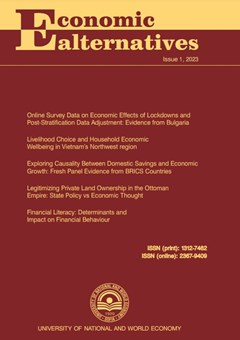Sports University Education and Entrepreneurial Intentions: Findings from Kosovo
Authors: Shqipe Bajcinca - Brestovci, Genc Zhushi, Besnik A. Krasniqi, Liridon Kryeziu, Saranda Lajqi, Besim Zeqiri, Zef Dedaj, Mehmet Bagis
Abstract
This paper aims to understand the impact of perceived behavioural control (PBC), personal attitude (PA), and subjective norms (SN) on the entrepreneurial intentions (EI) of undergraduate sport science students in Kosovo. We use a sample of 238 respondents, sports students of the University of Prishtina, using The EI questionnaire by Linan and Chen (2009), and implemented by authors during 2020. Drawing on the theory of planned behaviour (TPB) and using structural equation modelling, this study measures the impact of PBC, PA, perceived SN on EI of sport science students. Control variables are also included in this model, such as necessity-driven motives for business and need for financial support for start-ups and other socio-demographic variables such as age and gender. Findings show that PBC and PA have a positive and statistically significant effect on EI while SN is not significant. Necessity-driven motives have a positive impact on EI suggesting an unemployment push effect on EI; females and older students have a higher EI. The study concludes with practical and policy implications to identify and support students and graduates entering the entrepreneurship career.

